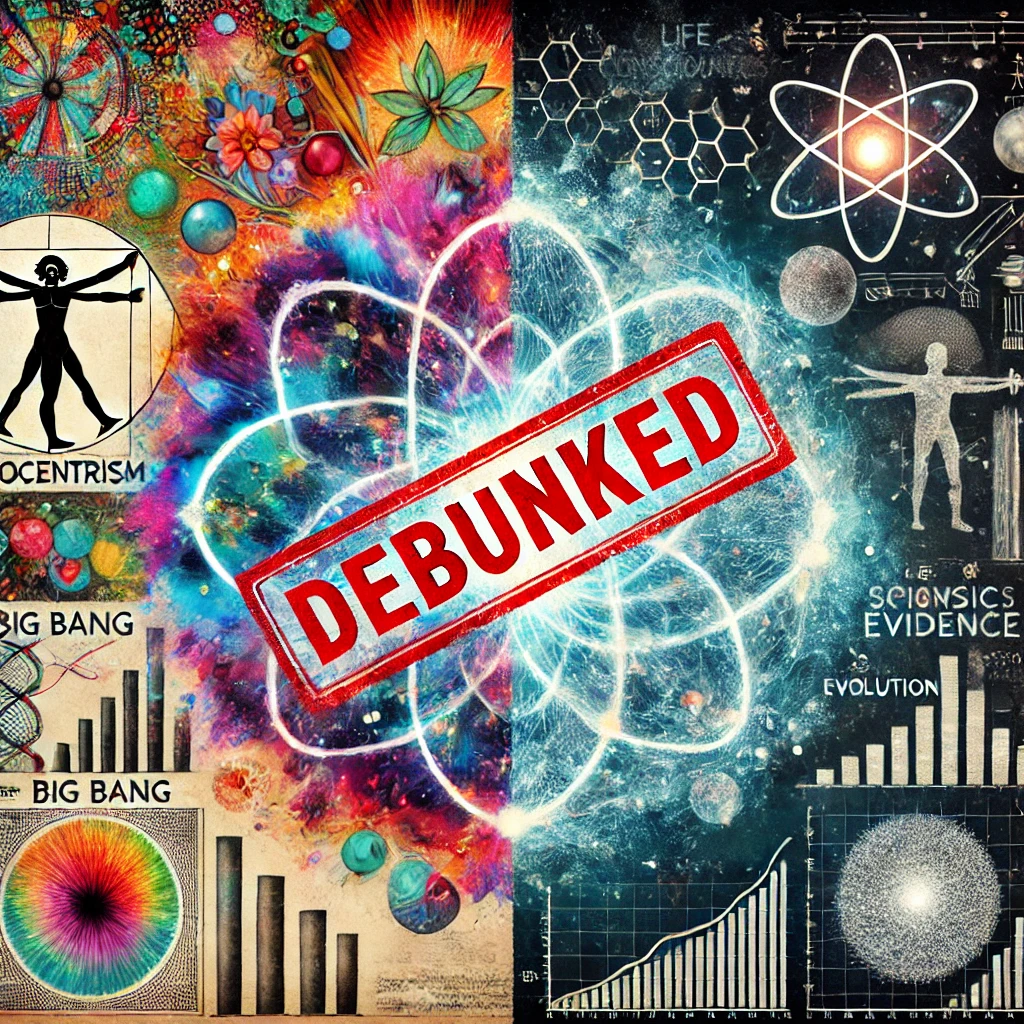Biocentrism debunked: a topic that has sparked many debates. Biocentrism is a theory that suggests life and biology are central to reality and the universe. But is this theory really valid? Let’s explore why biocentrism has been debunked by many scientists and why it’s important to understand the science behind it.
What is Biocentrism?
Biocentrism is a theory proposed by Dr. Robert Lanza. It states that life and consciousness create the universe, not the other way around. According to this view, everything we see and experience is a result of our consciousness. But is there any scientific evidence to support this claim?
To understand biocentrism, imagine the universe as a grand stage. Biocentrism suggests that without life, this stage would not exist. This idea challenges the traditional view that the universe existed first, and life came later. However, many scientists argue that this theory is not supported by scientific evidence.
Why is Biocentrism Debunked?
First, biocentrism debunked claims often focus on the lack of empirical evidence. Scientific theories require evidence that can be tested and repeated. Biocentrism, however, relies heavily on philosophical ideas rather than scientific facts.
Additionally, biocentrism contradicts many established scientific principles. For example, the theory of evolution explains how life developed through natural selection. This process is based on physical and biological evidence. Biocentrism, on the other hand, suggests that life created the universe, which goes against the evidence supporting evolutionary theory.
Scientific Evidence Against Biocentrism
One major point in biocentrism debunked arguments is the lack of supporting evidence from physics. The laws of physics, such as gravity and electromagnetism, are well-established and have been tested repeatedly. These laws describe how the universe works, regardless of whether life exists or not.
Moreover, cosmology, the study of the universe’s origin and development, also challenges biocentrism. The Big Bang theory, supported by a vast amount of evidence, explains the universe’s beginning without involving life or consciousness. This evidence includes cosmic microwave background radiation, which provides a snapshot of the early universe.
Philosophical Issues with Biocentrism
Besides scientific problems, there are also philosophical issues with biocentrism. One major issue is solipsism, the idea that only one’s mind is sure to exist. Biocentrism can lead to solipsism because it suggests that the universe is a product of individual consciousness.
Additionally, biocentrism debunked arguments often point out the lack of clarity in defining consciousness. Scientists and philosophers have debated the nature of consciousness for centuries, and there is still no consensus. Without a clear understanding of consciousness, it’s difficult to support a theory that places it at the center of the universe.
How Biocentrism Misinterprets Quantum Mechanics
Biocentrism often uses quantum mechanics to support its claims. Quantum mechanics is a branch of physics that deals with particles at the smallest scales. Some interpretations suggest that observation can affect quantum states, leading biocentrists to claim that consciousness creates reality.
However, this interpretation is not universally accepted. Many physicists argue that quantum mechanics does not imply that consciousness creates reality. Instead, it suggests that observation affects measurement, not existence. This distinction is crucial in debunking biocentrism.
The Role of Consciousness in the Universe
Consciousness is undoubtedly an important aspect of human experience. It allows us to perceive, think, and interact with the world. But placing it at the center of the universe, as biocentrism does, is a leap beyond what science can currently support.
Most scientific theories place consciousness as a product of the brain. Neuroscience studies how the brain works and how consciousness arises from neural processes. This approach is supported by evidence from brain imaging and studies of brain function.
Conclusion: Why Understanding Science is Important
Biocentrism debunked is an important topic because it highlights the need for scientific literacy. Understanding how scientific theories are developed and tested helps us separate fact from fiction. While biocentrism presents an interesting philosophical perspective, it lacks the empirical support needed to be considered a valid scientific theory.
In conclusion, while the idea of biocentrism may be fascinating, it is essential to rely on evidence-based science. This approach ensures that our understanding of the universe is grounded in reality and supported by facts. By debunking biocentrism, we reinforce the importance of scientific inquiry and critical thinking.
Read More: JASON KOLSEVICH- A REMARKABLE JOURNEY IN BUSINESS AND INNOVATION







